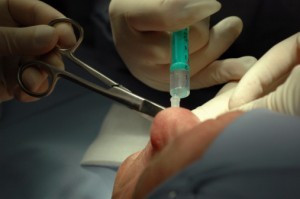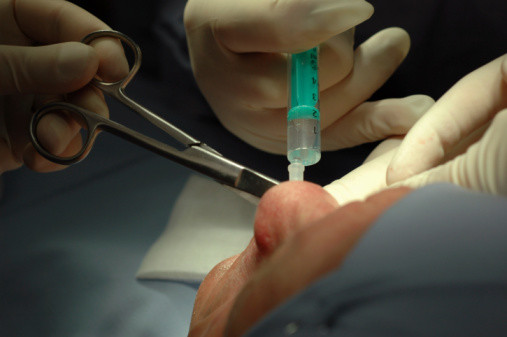 Most patients who have anesthesia for surgery come out just fine – but some are victims of anesthesia error and suffer serious complications like infections, kidney failure and brain damage.
Most patients who have anesthesia for surgery come out just fine – but some are victims of anesthesia error and suffer serious complications like infections, kidney failure and brain damage.
And some don’t survive being “put under.”
The most frequent cause of anesthesia error is negligence by the anesthesiologist. Patients are given general anesthesia before surgery in order to be placed in an unconscious or semi-conscious state. Things can go terribly wrong if the anesthesiologist makes a mistake.
The Closed Claims Project at the University of Washington in Seattle analyzed 9,536 closed malpractice insurance claims filed against anesthesiologists from the 1970s to 2010.
About half of the anesthesia injuries could have been prevented, the study found.
Common anesthesia mistakes include:
- Not determining the proper type of anesthesia. The wrong method or type of anesthesia is given.
- Not administering the proper dose. Severe and life-threatening problems can be caused by too much anesthesia.
- Failure to adequately monitor the patient. An anesthesiologist is supposed to regularly check the patient’s level of consciousness and look for signs of complications during anesthesia.
- Leaving the patient unattended. Proper medical supervision must always be maintained.
- Failure to properly recognize and respond to complications. An anesthesiologist must be ready to spring into action at any warning sign.
- Not performing an intubation safely. It can be a delicate procedure to intubate a patient to aid in breathing.
The former director of the Closed Claims Project, who presented the group’s findings at the 2012 annual meeting of the American Society of Anesthesiologists, said in many cases, a patient injury is a result of the failure of the anesthesiologist to follow directions or to remain vigilant.
One positive finding: There has been a sharp drop in claims from anesthesia gas delivery during the 20-year study period.
Source:
- Closed Claims Project (University of Washington) http://depts.washington.edu/asaccp/pubs/tags/publications/respiratory-system-damaging-events





